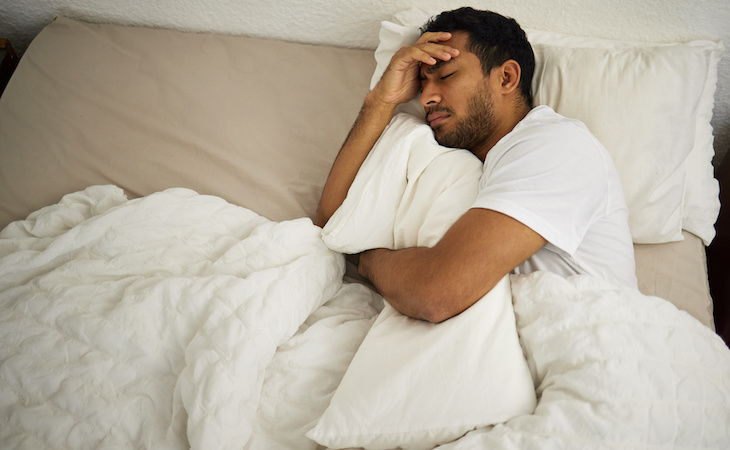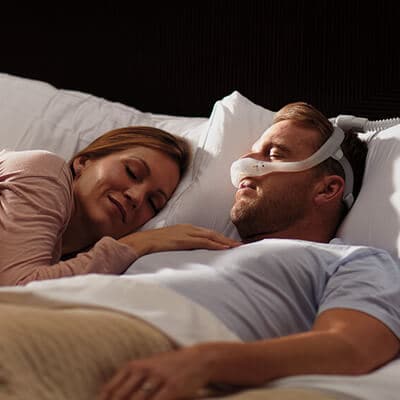Effective Insomnia Therapy - Regain Your Restful Nights
Effective Insomnia Therapy - Regain Your Restful Nights
Blog Article
Reliable Therapy Solutions for Managing Rest Disorders and Enhancing Relaxing Sleep
In the world of healthcare, the administration of rest conditions and the quest for peaceful sleep are essential elements of overall health. As we browse the elaborate landscape of rest disorders and look for to improve our sleep experience, a much deeper understanding of these therapy options might hold the trick to unlocking an extra refreshing and meeting corrective journey.
Cognitive Behavior Therapy for Sleeplessness (CBT-I)
Cognitive Behavior Treatment for Sleeping Disorders (CBT-I) is an organized, evidence-based treatment strategy that focuses on dealing with the underlying factors adding to rest disturbances. This kind of treatment aims to customize behaviors and thoughts that aggravate insomnia, inevitably advertising healthy rest patterns. CBT-I commonly entails numerous essential parts, including cognitive therapy, sleep constraint, stimulus control, and sleep health education.
Cognitive treatment helps people determine and transform adverse thought patterns and beliefs regarding rest that might be impeding their capacity to fall or stay asleep. Rest constraint includes limiting the amount of time invested in bed to match the individual's real rest period, therefore increasing rest performance (sleep deprivation help). Stimulus control techniques assist establish a solid association between the bed and sleep by urging people to head to bed only when sleepy and to prevent involving in promoting tasks in bed
In addition, sleep health education and learning focuses on establishing healthy rest behaviors, such as preserving a regular sleep schedule, producing a relaxing going to bed regimen, and maximizing the sleep environment. By resolving these elements thoroughly, CBT-I supplies an effective non-pharmacological intervention for taking care of sleeping disorders and enhancing total rest top quality.
Rest Health Practices
Having actually established the foundation of cognitive restructuring and behavioral modifications in dealing with sleep problems via Cognitive Behavioral Treatment for Sleep Problems (CBT-I), the focus now moves towards checking out important Sleep Hygiene Practices for keeping ideal sleep top quality and general wellness.
Rest hygiene techniques include a range of behaviors and environmental elements that can substantially influence one's capacity to sleep and remain asleep throughout the evening. Constant rest and wake times, developing a relaxing bedtime routine, and optimizing the rest atmosphere by maintaining it dark, peaceful, and cool are important parts of good sleep health. Restricting exposure to screens prior to bedtime, preventing stimulants like high levels of caffeine close to going to bed, and taking part in routine exercise throughout the day can also promote much better sleep top quality.
Additionally, practicing leisure strategies such as deep breathing workouts or reflection before bed can help relax the mind and prepare the body for sleep. By incorporating these sleep health methods right into one's everyday regimen, individuals can develop a healthy rest pattern that supports relaxing sleep and general wellness.
Relaxation Strategies and Mindfulness
Implementing relaxation methods and mindfulness practices can play a pivotal role in promoting a feeling of calmness and advertising high quality sleep. insomnia specialist. These methods aim to silent the mind, lower stress and anxiety, and develop an ideal environment for relaxing sleep. One widely exercised method is deep breathing exercises, where people concentrate on slow, deep breaths to kick back the mind and body. Progressive muscle relaxation entails tensing and after that releasing each muscular tissue group, advertising physical leisure. In addition, led imagery can aid deliver individuals to a calm place in their minds, aiding in stress reduction and improving rest top quality.
By including these practices right into a bedtime routine, individuals can signal to their bodies that it is time to prepare and relax for sleep. On the whole, integrating relaxation strategies and mindfulness practices can significantly contribute to handling rest problems and boosting overall rest quality.

Medicine Options for Rest Disorders
After discovering leisure techniques and mindfulness techniques as non-pharmacological interventions for improving rest high quality, it is necessary to consider medicine alternatives for people with sleep conditions. In instances where lifestyle modifications and therapy do not give adequate relief, medicine can be a useful device in handling rest disturbances.
Typically prescribed medicines for sleep disorders include benzodiazepines, non-benzodiazepine hypnotics, antidepressants, and melatonin receptor agonists. Antidepressants, such as trazodone, can be useful for people with co-occurring clinical depression and sleep disturbances - cognitive behavioral therapy for insomnia (CBT-I).
It is essential for individuals to talk to a doctor to determine the most find more information suitable medication alternative based upon their certain sleep condition and medical history.
Light Treatment for Circadian Rhythm Policy
Light treatment, also called phototherapy, is a non-invasive therapy method made use of to regulate body clocks and boost sleep-wake cycles. This therapy includes direct exposure to intense light that imitates natural sunshine, which aids to reset the body's biological rhythm. By revealing individuals to certain wavelengths of light, commonly in the early morning or night depending on the wanted impact, light treatment can successfully change the circadian rhythm to advertise wakefulness throughout the day and boost relaxing sleep at evening.
Study has shown that light therapy can be particularly valuable for people with circadian rhythm disorders, such as delayed sleep stage disorder or jet lag. It click for info can likewise be valuable for those experiencing seasonal depression (SAD), a kind of clinical depression that generally occurs during the cold weather when all-natural light exposure is minimized. Light therapy is normally well-tolerated and can be used combined with various other treatment methods for sleep disorders to optimize outcomes and enhance general sleep top quality.
Final Thought
Finally, reliable treatment services for handling sleep conditions and boosting relaxing rest include Cognitive Behavior modification for Sleeping Disorders (CBT-I), rest health methods, relaxation methods and mindfulness, medicine choices, and light therapy for body clock policy. These techniques can assist individuals enhance their rest quality and general well-being. It is very important to seek advice from a doctor to determine the most appropriate technique for attending to sleep issues.
As we browse the complex landscape of rest problems and seek to improve our sleep experience, a much deeper understanding of these treatment remedies might hold the secret to unlocking a much more refreshing and meeting corrective journey.
Sleep constraint involves restricting the amount of time spent in bed to match the individual's actual sleep period, consequently enhancing sleep performance. Consistent rest and wake times, developing a relaxing bedtime regimen, and maximizing the rest atmosphere by keeping it dark, peaceful, and cool are vital click this parts of excellent rest health. Light treatment is typically well-tolerated and can be made use of in conjunction with various other treatment approaches for sleep conditions to enhance end results and improve overall sleep high quality.

Report this page